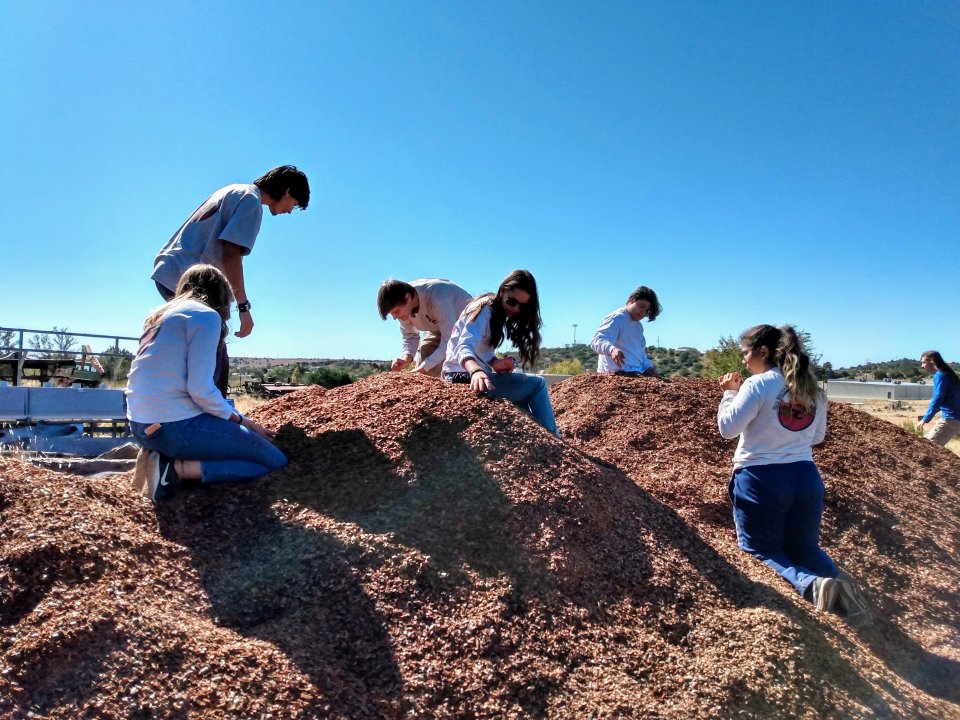Restoring Soil and Soil Fertility in Silver City, New Mexico
How community partnerships strengthened food security and resilience to drought
Why Climate Resilience Is Important to Silver City
Wildfire, drought, water scarcity, and extreme heat increasingly threaten food security in the economically challenged region of Grant County, New Mexico, a community where over 60% of residents are people of color. The U.S. Southwest is facing ongoing threats of drought and long-term aridification, which are directly impacting soil quality and putting community food security in jeopardy. To make the local soil more resilient to drought and to increase food security, the community in Silver City galvanized partnerships to create composting systems to restore soil health.
Partnerships and Project Goals
The goal of the Silver City Carboneers project was to adapt to wildfire, drought, and heat. The Silver City Carboneers project is driven by a diverse group of local residents who have been working together to enhance community resilience by building partnerships, weaving together local knowledge and resources, and developing a model Civilian Climate Corps. Civilian Climate Corps is a workforce training and service initiative that will train young Americans to build climate and community resilience.

In response to these present and future environmental hazards, the Upper Gila Watershed Alliance in Grant County leveraged around $200,000 awarded from the EJ4Climate Grant Program to hire two Civilian Climate Corps members and recruited eight volunteers from the community to assist with the implementation of the project. Project implementers subsequently attended an expert-led, hands-on training workshop in northern New Mexico to learn how to build and use Johnson-Su bioreactors, a type of composting system that creates a static, fungal-rich compost that can be used to restore degraded soil, creating fertile soil to help grow food crops.
Additionally, project implementers held a Climate Action Academy, an interactive online course covering the topics of climate change and food sustainability, for staff of participating schools and interested community members. Four schools in two school districts participated in the Academy. The Academy went into classrooms to conduct experiments that focus on soil health, introduce students to the soil biome and provide students with the opportunity to learn how to construct and fill a Johnson-Su Bioreactor.
The Upper Gila Watershed Alliance also held three “Climathons” in October 2022. Over a three-day period, 4th and 5th grade students were encouraged to be changemakers and gain new skills and knowledge on how to create resilience in their community by composting.
Adaptation in Action
Fifty-six bioreactors have been built thus far and additional bioreactors are presently being installed on school campuses with the participation of students. These “food resilience labs” simultaneously address cafeteria food waste, fire risk, and food insecurity in Grant County. From three small elementary schools, approximately 40,000 pounds of food waste was diverted from the county’s landfill. Periodic thinning of local forests reduces the threat of forest fires while the by-products of the thinning process, as well as food waste from schools, produce a biomass waste stream for the Johnson-Su compost reactors.
